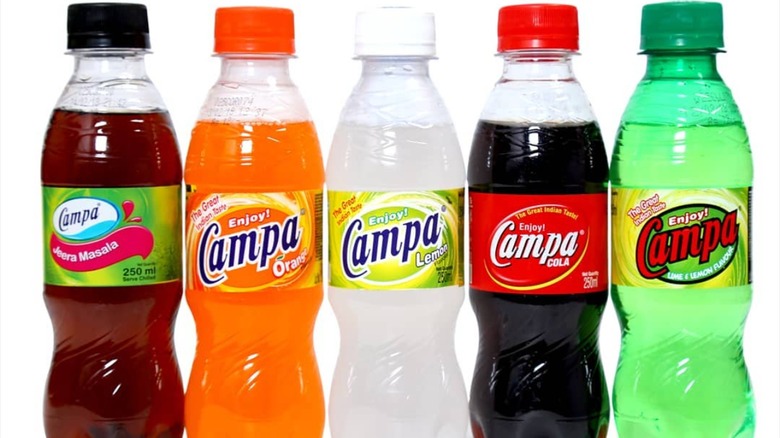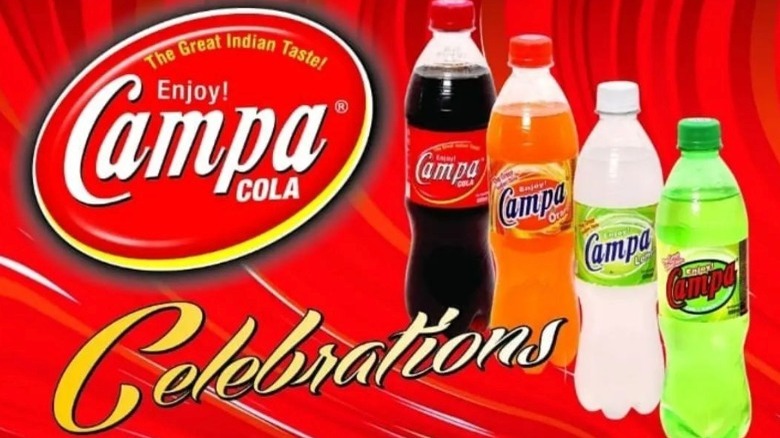The Iconic 1970s Campa Cola Is Finally Returning
Soft drinks represent the largest segment of India's $16.74 billion non-alcoholic beverage market, estimated to reach $8.85 billion in 2023, per Statista. The Reliance Group, owned by Indian billionaire Mukesh Ambani, hopes to tap into nostalgia for consumers who may remember sipping the iconic soft drink Campa Cola throughout their childhoods.
Indians who fondly remember the cola may also remember that it became especially popular after Coca-Cola withdrew from the Indian market in 1977 when the government introduced regulations requiring Coca-Cola to reveal the famously secret ingredients of its soda. Campa Cola became a pop culture phenomenon with clever television and print campaigns, one of which featured a Bollywood star on a yacht. Campa was bottled in the same plant as Coke and even used the same font as Coca-Cola for its logo. It also had a catchy nationalistic tagline, "The Great Indian Taste."
Campa was a major player in the country's soft drink market until the 1990s when India's Prime Minister P.V. Narasimha Rao and his Finance Minister Manmohan Singh changed direction and became more inviting to foreign investors. By 1993 Coke, Pepsi, and Fanta stole back their market share, and Campa Cola faded away until now. After decades, India's iconic soft drink is making a comeback. The Reliance Group purchased the brand from Pure Drinks Group in August 2022 for $2.7 million and announced plans to relaunch the nostalgic beverage this summer.
There will be 3 flavors
The Reliance Group will launch three flavors: Campa Cola, Campa Lemon, and Campa Orange. The soft drinks will be available in five sizes, begging at 200 milliliters and ending at 2 liters. Along with its original patriotic tagline, the Campa product line will focus on unique flavors that appeal to Indian consumers and "promote indigenous Indian brands."
Speaking to The Times of India, a spokesperson for the company said they hope to capitalize on the "rapidly evolving Indian market throwing up more consumption occasions" and that this launch is the first step towards an expanding portfolio. In the '70s and '80s, Campa was associated with fun times, popping up at birthday parties and gatherings, particularly for children and teenagers who were targeted by the company's robust nationalistic marketing campaigns. Still, in the end, Campa's flavor couldn't compete with Coca-Cola.
The Times of India columnist Santosh Desai told the New York Times in 2009 about the brand, "Campa tasted good – because we didn't have any other options." Author Salman Rushdie called Indian sodas "disgusting local imitations," a sentiment echoed by ad filmmaker Alyque Padamsee who called Campa an "imitation brand" in an interview with The Print. Campa was a substitute for Coke when it reigned supreme, and now they will need to compete with the giant. Coke and Pepsi control 80% of the Indian market, so Campa can't just rely on nostalgia to carve their place in the industry.

